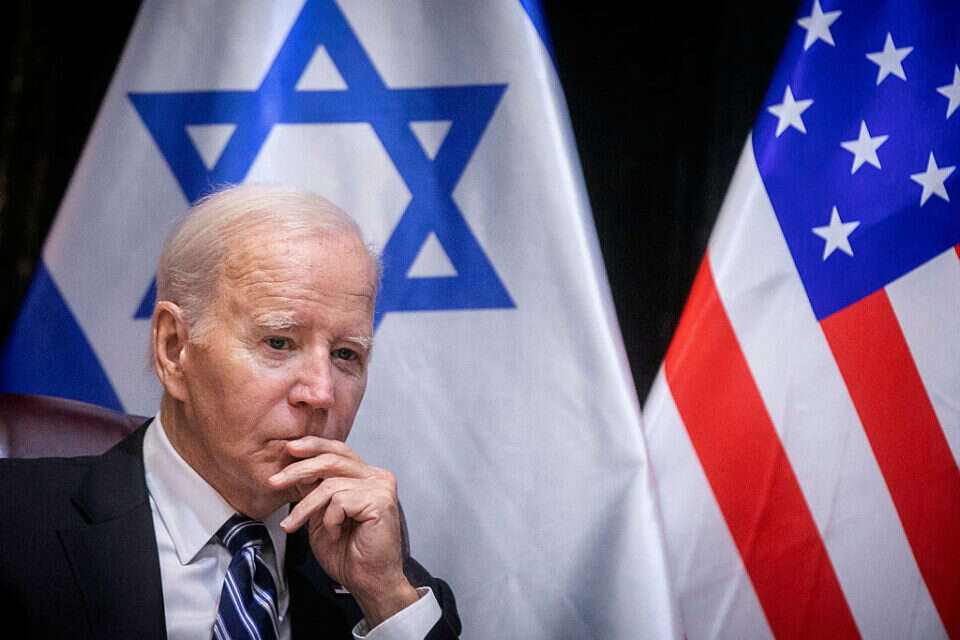Every time Americans told us, "Don't go to war," and we answered, "Yes, but" — in 1948, 1956, 1967, 1981 (the destruction of the Iraqi reactor) — we were appreciated. Every time Americans told us, "Don't go to war," and we replied, "Yes, okay." In 1973, in 1991 (the first Gulf War), we were booed. Today, when Americans repeatedly tell us, "Don't go to war against Hezbollah and in the north," looking at history is essential.
The American position is understandable. President Biden, who is already jeopardizing his political future and angering quite a few members of his government over his support for Israel and his opposition to a ceasefire in Gaza, does not want to be dragged into a war in the Middle East. This reluctance reflects not only the isolationist wind blowing in both the Democratic and Republican parties, but his fears of a dangerous military entanglement on the eve of the 2024 presidential election.
Biden visiting Israel during the war, photo: EPA
US forces in the region are also deterring Israel
In addition, the president is committed to a policy established during the Obama administration in 2009, which seeks to establish reconciliation between the United States and Iran. The developments now could once again drag the United States into the conflicted Middle East.
Only over the weekend, after an Iranian missile fired at an oil tanker in the Indian Sea, did the administration see fit to point the finger at Iran. Prior to that, pro-Iranian forces in Syria and Iran had shelled U.S. bases in the Middle East more than 100 times, and worked to shut down international shipping through the Bab al-Mandeb Strait without the administration uttering the word "Iran."
WHEN THE AMERICANS TOLD US "DON'T GO TO WAR" AND WE REPLIED "YES, BUT" - WE WERE APPRECIATED, PRIME MINISTER BEN-GURION WITH PRESIDENT TRUMAN, PHOTO: FRITZ COHEN
Clearly, an Israeli military move against Hezbollah could complicate the American naval forces in the region. These forces are intended, among other things, to help us intercept Hezbollah's missile fire. But if a single missile or drone hits an American destroyer, the United States could find itself involved in a war. In fact, these same forces serve as a deterrent against Hezbollah and Iran, but also deter us by giving the United States almost a veto over the area of Israeli military activity.
Therefore, the administration wants to advance a political process aimed at implementing UN Resolution 1701 of 2006, which Hezbollah violated regularly, and keeping terrorists north of the Litani River. This move – even if it succeeds – will not change our security situation much, because once we are in a political process, we will have to give up the military option.
Israel faces intolerable situation in the north, damage caused by anti-tank fire, Photo: None
Israel faces an intolerable situation in the north, and a threat that no sovereign country in the world will tolerate. There is hope among Israeli decision-makers that our victory against Hamas will deter Hezbollah, but this victory will probably take time. In the meantime, there is a danger that Hezbollah is waiting for the moment when the IDF gets tired and American support for Israel weakens, and then it will open fire. Perhaps, as in 1973, if we suffer the first attack we will gain additional American support, but we will pay a high price.
Two months ago I asked on this page: "If not now, when?" Today I repeat this question: Are we ready to say "yes, but" to our allies, thereby earning not only our confidence but also their appreciation?
Wrong? We'll fix it! If you find a mistake in the article, please share with us

